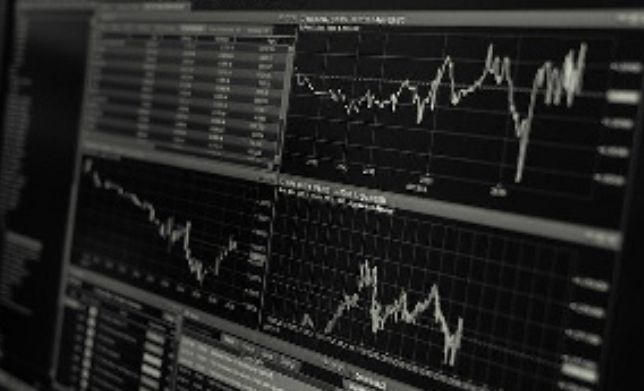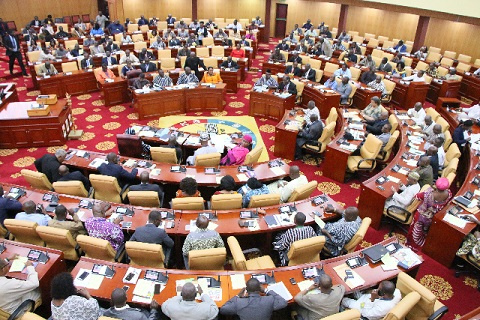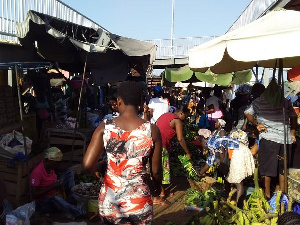Five essential facts to know about Forex Trading in Ghana

Retail traders can also trade in the forex market for speculation. Their volume is less than 5% of the total trading volume, but this is growing every year. Retail forex trading is also picking up in Africa, and there are estimated to be around 35,000 active retail traders who are trading from Ghana.
Forex Trading is not yet regulated in Ghana & they are a lot of myths about forex trading investor education is very crucial at a time when a lot of people have access to the internet and are exposed to conspiracy theories and forex scams.
These five important facts will try to debunk the myths about forex trading in Ghana.
Fact 1 – There is no Regulation guiding Retail Forex Trading in Ghana
Forex trading between Banks in Ghana takes place in the inter-bank market and is regulated by the Bank of Ghana. However, retail forex trading by individual traders is not yet regulated in Ghana.
While retail forex trading is not illegal in Ghana, the government will not compensate for any loss of funds that may occur due to patronizing fraudulent foreign brokers. This is because the government does not regulate these foreign/international forex brokerage firms. Retail forex traders in Ghana do so at their own risk.
In 2020, it was reported that the Securities and Exchange Commission (SEC) was planning to come up with a framework to enable retail forex trading begin in Ghana. This was partly due to concerns about lots of foreign exchange leaving Ghana for other countries due to Ghanaian forex traders patronizing foreign forex and CFD brokers.
Unfortunately, it appears that the COVID-19 pandemic interfered with the timetable, but we could see online forex trading get regulated in Ghana.
SEC plans to grant licenses to those with business names rather than just individuals to ensure that the licensees are buoyant enough to trade forex and also to ensure strict compliance with global Anti-money laundering laws.
Fact 2 – You can only access the market from Ghana using foreign forex brokers
Since the Securities and Exchange Commission, (SEC) does not currently regulate retail forex trading in Ghana, it means they do not issue licenses to forex brokers and currently there is recourse for investors in case of scams or wrongdoing by brokers.
As per Karan Singh from broker research website Safe Forex Brokers, “Most of the retail forex traders in Ghana trade via forex brokers holding a foreign financial license like FCA, CySEC, ASIC or FSCA. Currently, there are a lot of forex brokers who accept clients from Ghana but hold foreign licenses and they provide online trading platforms that can be downloaded to a mobile device, considering high mobile data penetration.”
“The brokers generally advertise online on social media to reach customers in Ghana; outreach and conversion are mostly done online, which puts clients at risk as many brokers are unregulated and some are even scams; that is why it is important to check the regulation of a broker.”
A forex broker’s license is important as it shows that the broker is supervised by a regulator and is answerable to them. A broker can hold more than one license as this is not a bad thing.
Every country where retail forex trading is regulated issues licenses to forex brokers. Some notable countries and their regulatory authorities are:
1. Financial Conduct Authority (FCA)- United Kingdom
2. Australian Securities & Investment Commission (ASIC)- Australia
3. Cyprus Securities & Exchange Commission (CySEC)- Cyprus
4. European Securities and Markets Authority (ESMA)- European Union
But most of the forex brokers register their clients from Africa under offshore regulations like Belize, Mauritius, etc. This is risky for traders as you will not get the same protection of funds that you can get from a regional regulation or a major Tier-1 regulation.
Fact 3 – Brokers may offer very high leverage which could be dangerous
Leverage has to do with borrowing from your forex broker to trade forex.
Retail traders borrow because for them to make big profits trading currencies, they have to invest lots of capital. The more capital a retail trader invests in buying currency pairs, the higher his profit or loss will be.
Leverage is expressed as a ratio example of 1:100 and this means that for every $1 a trader puts down, the forex broker allows him access to currency worth $100
Before a trade transaction begins the trader must deposit an initial margin payment into his account as a sign of goodwill. The margin payment is a percentage calculated as 1/leverage.
For a trade position of $100,000 with a 1:100 leverage, the initial margin deposit is $1,000 i.e. (1/100) x $100,000.
Out of the $100,000 the trader comes up with $1,000 while the broker loans him the balance of $99.000.
A retail trader should always remember that leverage is a loan and when the forex broker sees your initial margin deposit is diminishing due to losing trades and you may not be able to repay his loan, he closes all your open trading positions and you bear the loss.
Example 1
If a trader has an initial capital of $1,000 to trade with and his broker gives him 1:100 leverage, it automatically means he has a new leveraged capital of $100,000. Should his investment lose value by 10%, he loses $100 if he had invested just his initial capital and loses a whopping $10,000 if he used leveraged capital.
As seen in example 1, leverage can be irresistible but is also a double-edged sword as it can also increase a trader’s losses and wipe out his capital.
Since retail forex trading is not regulated in Ghana, some forex brokers take advantage of this vacuum to administer high leverage to traders. Many of these retail forex traders are inexperienced and end up recording losses and losing all their trading capital.
The forex broker is a business and doesn’t care if you lose as far as they get their commissions and fees. For every time a forex trader initiates a new transaction, fees will apply. It is in the best interest of retail forex traders to use smaller leverage like 1:5.
Fact 4 – There are many scam brokers operating
Many forex brokers operate without a license and this is very dangerous. Patronizing an unlicensed forex broker is like giving your money to a stranger to safeguard.
There are many crypto brokers as well that claim to offer high returns from forex & crypto trading. SEC has warned against such crypto platforms and such platforms are illegal.
If you are considering patronizing a forex broker you may want to take the following precautionary steps:
1. Ask for their license
2. Go to the issuing authority’s website and check if the broker’s name is listed there as a licensed operator
3. If you were contacted by telephone or email, check if the phone number or email address used to contact you matches that on the regulator’s website
4. Compare the forex brokers website address with what is on the regulator’s page because scammers can create a copycat or cloned website
5. Check if the forex broker has an insurance cover and view the insurance certificate available on their website to be sure it’s not expired.
Many retail traders have lost funds to scam forex brokers who propose mouthwatering offers such as guaranteed profits, 90% return on investment, all sorts of bonuses, etc.
They engage in flashy advertising posing as so-called forex gurus brandishing expensive cars and mansions. All these are red herrings meant to distract the target from carrying out background checks on them and asking for their license.
Many times these people turn out to be fraudsters and end up running away with the clients’ money.
Fact 5 – More than 80% of retail Forex Traders lose money
Sounds like sad news for new traders, but this is true. Retail forex traders constitute about 5.5% of the global forex market so their losses go unnoticed. Large Banks make big profits in the forex market because they have sophisticated trading software, access to information/ back door channels, and enormous trading capital so they may not need leverage, manpower, etc. Retail traders may not have all this at their disposal so they record more losses than the big banks.
Avoid Trading Forex till it is regulated in Ghana
Forex trading in Ghana may soon be regulated as the SEC is said to be working on a framework but until then retail forex traders should not trade, or only trade via international forex brokerage firms which are regulated by top-tier regulations. These firms may offer high leverage but traders should self-regulate and use leverage responsibly.





